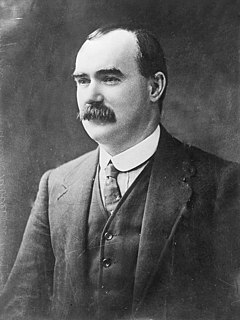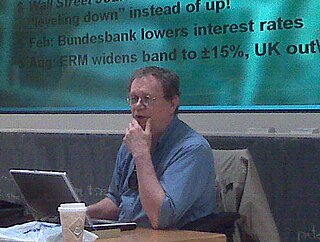Libertarian socialism, also referred to as anarcho-socialism, anarchist socialism, free socialism, stateless socialism, socialist anarchism and socialist libertarianism, is an anti-authoritarian, anti-statist and libertarian political philosophy within the socialist movement which rejects the state socialist conception of socialism as a statist form where the state retains centralized control of the economy. Overlapping with anarchism and libertarianism, libertarian socialists criticize wage slavery relationships within the workplace, emphasizing workers' self-management and decentralized structures of political organization. As a broad socialist tradition and movement, libertarian socialism includes anarchist, Marxist and anarchist or Marxist-inspired thought as well as other left-libertarian tendencies. Anarchism and libertarian Marxism are the main currents of libertarian socialism.

The Zapatista Army of National Liberation, often referred to as the Zapatistas, is a libertarian socialist political and militant group that controls a substantial amount of territory in Chiapas, the southernmost state of Mexico.

James Connolly was an Irish republican, socialist and trade union leader. Born to Irish parents in the Cowgate area of Edinburgh, Scotland, Connolly left school for working life at the age of 11, and became involved in socialist politics in the 1880s.
Sam Dolgoff (1902–1990) was an anarchist and anarcho-syndicalist from Russia who grew up and lived and was active in the United States.

Harry Cleaver Jr. is an American scholar, Marxist theoretician, and professor emeritus at the University of Texas at Austin. He is best known as the author of Reading Capital Politically, an autonomist reading of Karl Marx's Capital. Cleaver is currently active in the Zapatista movement in Chiapas, Mexico.

Liu Shifu was an influential figure in the Chinese revolutionary movement in the early twentieth century, and in the Chinese anarchist movement in particular. He was a key figure in the movement, particularly in Canton province, and one of the most important organizers in the Chinese anarchist tradition. He is sometimes considered as the Pierre-Joseph Proudhon of China.

William Montgomery Watt was a Scottish Orientalist, historian, academic and Anglican priest. From 1964 to 1979, he was Professor of Arabic and Islamic studies at the University of Edinburgh.
Richard Holloway FRSE is a Scottish writer, broadcaster and cleric. He was the Bishop of Edinburgh from 1986 to 2000 and Primus of the Scottish Episcopal Church from 1992 to 2000.

John Holloway is a lawyer, Marxist-oriented sociologist and philosopher, whose work is closely associated with the Zapatista movement in Mexico, his home since 1991. It has also been taken up by some intellectuals associated with the piqueteros in Argentina; the Abahlali baseMjondolo movement in South Africa and the Anti-Globalization Movement in Europe and North America. He is currently a professor at the Institute for Humanities and Social Sciences at the Autonomous University of Puebla.

Autonomism, also known as autonomist Marxism and autonomous Marxism, is an anti-capitalist left-wing political and social movement and theory. As a theoretical system, it first emerged in Italy in the 1960s from workerism (operaismo). Later, post-Marxist and anarchist tendencies became significant after influence from the Situationists, the failure of Italian far-left movements in the 1970s, and the emergence of a number of important theorists including Antonio Negri, who had contributed to the 1969 founding of Potere Operaio as well as Mario Tronti, Paolo Virno and Franco "Bifo" Berardi.
The Conference of Socialist Economists (CSE) describes itself as an international, democratic membership organisation committed to developing a materialist critique of capitalism, unconstrained by conventional academic divisions between subjects.
Anarchism in China was a strong intellectual force in the reform and revolutionary movements in the early 20th century. In the years before and just after the overthrow of the Qing dynasty Chinese anarchists insisted that a true revolution could not be political, replacing one government with another, but had to overthrow traditional culture and create new social practices, especially in the family. "Anarchism" was translated into Chinese as 無政府主義 literally, "the doctrine of no government."
Anarchism is generally defined as the political philosophy which holds the state to be undesirable, unnecessary and harmful as well as opposing authority and hierarchical organization in the conduct of human relations. Proponents of anarchism, known as anarchists, advocate stateless societies based on non-hierarchical voluntary associations. While anarchism holds the state to be undesirable, unnecessary and harmful, opposition to the state is not its central or sole definition. Anarchism can entail opposing authority or hierarchy in the conduct of all human relations.
Communism is a philosophical, social, political, and economic ideology and movement whose goal is the establishment of a communist society, namely a socioeconomic order structured upon the ideas of common ownership of the means of production and the absence of social classes, money, and the state. Communism is a specific, yet distinct, form of socialism. Communists agree on the withering away of the state but disagree on the means to this end, reflecting a distinction between a more libertarian approach of communization, revolutionary spontaneity, and workers' self-management, and a more vanguardist or Communist party-driven approach through the development of a constitutional socialist state.

Arif Dirlik was a Turkish-American historian who published on historiography and political ideology in modern China, as well as issues in modernity, globalization, and post-colonial criticism. Dirlik received a BSc in Electrical Engineering at Robert College, Istanbul in 1964 and a PhD in History at the University of Rochester in 1973.
Neozapatismo or neozapatism is the political philosophy and practice devised and employed by Mexico's Zapatista Army of National Liberation, who have governed a number of communities in Chiapas since the beginning of the Chiapas conflict. According to its adherents, it is not an ideology: "Zapatismo is not a new political ideology or a rehash of old ideologies. .. There are no universal recipes, lines, strategies, tactics, laws, rules or slogans. There is only a desire: to build a better world, that is, a new world."

Open Marxism is a school of thought which draws on libertarian socialist critiques of party communism and stresses the need for openness to praxis and history through an anti-positivist (dialectical) method grounded in the "practical reflexivity" of Karl Marx's own concepts. The "openness" in open Marxism also refers to a non-deterministic view of history in which the unpredictability of class struggle is foregrounded.
Democratic socialism is a political philosophy that supports political democracy within a socially owned economy, with a particular emphasis on economic democracy, workplace democracy, and workers' self-management within a market socialist economy, or an alternative form of decentralised planned socialist economy. Democratic socialists argue that capitalism is inherently incompatible with the values of freedom, equality, and solidarity and that these ideals can only be achieved through the realisation of a socialist society. Although most democratic socialists seek a gradual transition to socialism, democratic socialism can support either revolutionary or reformist politics as means to establish socialism. Democratic socialism was popularised by socialists who were opposed to the backsliding towards a one-party state in the Soviet Union and other nations during the 20th century.
There is a brief history of anarchism in Singapore. In contemporary times, there is little or no presence of the ideology in the country.







